![Art Ensemble Of Chicago: Les Stances a Sophie [VINYL] (Play Loud! Productions) Art Ensemble Of Chicago: Les Stances a Sophie [VINYL] (Play Loud! Productions)](https://www.teuthida.com/productImages/misc4/33134.jpg)
Recording in France in 1970, the Art Ensemble of Chicago (Malachi Favors on bass, Joseph Jarman on saxophone, Roscoe Mitchell on saxophone, Lester Bowie on trumpet) recorded the soundtrack to director Moshé Mizrahi's movie Les stances à Sophie, joined by vocalist Fontella Bass, releasing a classic and exciting album that stands as a great testament to the versatility of its players.
Out of Stock
Quantity in Basket: None
Log In to use our Wish List
Shipping Weight: 24.00 units
Sample The Album:
Malachi Favors-bass
Joseph Jarman-saxophone, percussion
Roscoe Mitchell-saxophone, percussion
Lester Bowie-trumpet, percussion
Fontella Bass-vocal
Click an artist name above to see in-stock items for that artist.
UPC: 4042564227505
Label: Play Loud! Productions
Catalog ID: PL 135LP
Squidco Product Code: 33134
Format: LP
Condition: New
Released: 2023
Country: Germany
Packaging: LP
Recorded in the studios of Path� Marconi. in Boulogne, France, on July 22nd, 1970.
Les stances à Sophie aka Sophie's Ways directed by Moshé Mizrahi was originally released in the cinemas in 1971.
On May 28, 1969, four American musicians -- reed/wind players Roscoe Mitchell and Joseph Jarman, bassist Malachi Favors, and (accompanied by his wife, singer Fontella Bass) trumpeter Lester Bowie -- boarded the ocean liner S.S. United States, bound for Le Havre, France. After landing five days later, they moved on to Paris, where they got to work. On August 22, 1970, in the waning days of their stay overseas, the group, with Fontella Bass on vocals, would record their second release for EMI's Pathe; Marconi: the movie soundtrack Les Stances à Sophie.
The record, an exciting, eminently listenable combination of soul, classical, and jazz strains that survives as the Art Ensemble of Chicago's most stylistically diverse album, has long been admired by a devoted cult. Its durability is largely due to the popularity of its "hit": Over the years, "Theme de Yoyo" has been covered repeatedly, essayed by acts as varied as German funk band the Boogoos (and the offshoot Deep Jazz, both featuring singer Julia Fehenbeger), British nu-jazz combo the Cinematic Orchestra, Polish jazz man Wojtek Mazolewski, Norwegian rockers Motorpsycho, French dance music artist Etienne Jaumet, and London-based remixer, Shall I Bruk It.
More than half a century later, "Theme de Yoyo" and Les Stances A Sophie still bring it. Limited-edition LP reissue from play loud! Productions, supplemented with new notes by U.S. music journalist Chris Morris."Play Loud! Productions
Artist Biographies
• Show Bio for Malachi Favors "Malachi Favors (August 22, 1927, Lexington, Mississippi - January 30, 2004, Chicago, Illinois) was a noted American jazz bassist best known for his work with the Art Ensemble of Chicago. Favors primarily played the double bass, but also played the electric bass guitar, banjo, zither, gong, and other instruments. He began playing double bass at the age of 15 and began performing professionally upon graduating high school. Early performances included work with Dizzy Gillespie and Freddie Hubbard. By 1965, he was a founder of the Association for the Advancement of Creative Musicians and a member of Muhal Richard Abrams' Experimental Band. At some point he added the word "Maghostut" to his name and because of this he is commonly listed as "Malachi Favors Maghostut". Musically he is most associated with bebop, hard bop, and particularly free jazz. Favors was a protégé of Chicago bassist Wilbur Ware. His first known recording was a 1953 session with tenor saxophonist Paul Bascomb. He made an LP with Chicago pianist Andrew Hill (1957). Favors began working with Roscoe Mitchell in 1966; this group eventually became the Art Ensemble of Chicago. Favors also worked outside the group, with artists including Sunny Murray, Archie Shepp, and Dewey Redman. Prominent records include Natural and the Spiritual (solo bass, 1977) and Sightsong (duets with Muhal Richard Abrams, 1975). In 1994 he played with Roman Bunka (Oud) at Berlin Jazz Fest and recorded the German Critics Poll Winner album Color me Cairo. Favors died of pancreatic cancer in 2004, aged 76. Since his death, there have been several recorded tributes by fellow musicians (and especially Chicagoans), including Big M, A Tribute to Malachi by Kahil El'Zabar and the "Malachi Favors Suite" for unaccompanied double bass, composed and recorded by fellow Chicago bassist Karl E. H. Seigfried." ^ Hide Bio for Malachi Favors • Show Bio for Joseph Jarman "Joseph Jarman (born September 14, 1937 in Pine Bluff, Arkansas), is a jazz musician, composer, and Shinshu Buddhist priest. He was one of the first members of the Association for the Advancement of Creative Musicians and a member of the Art Ensemble of Chicago. Jarman grew up in Chicago, Illinois. At DuSable High School he studied drums with Walter Dyett, switching to saxophone and clarinet when he joined the United States Army after graduation. During his time there, he was part of the 11th Airborne Division Band for a year. After he was discharged from the army in 1958, Jarman attended Wilson Junior College, where he met bassist Malachi Favors Maghostut and saxophonists Roscoe Mitchell, Henry Threadgill, and Anthony Braxton. These men would often perform long jam sessions at the suggestion of their professor Richard Wang (now with Illinois University). Mitchell introduced Jarman to pianist Muhal Richard Abrams, and Jarman, Mitchell, and Maghostut joined Abrams' Experimental Band, a private, non-performing ensemble, when that group was founded in 1961. The same group of musicians continued to play together in a variety of configurations, and went on to found the Association for the Advancement of Creative Musicians (AACM) in 1965, along with Fred Anderson and Phil Cohran. Jarman's solo recording career began at this time with two releases on the Delmark Label which included non-conforming recording methods, such as spoken word and "little instruments", the latter a technique that Jarman and Mitchell would use to effectiveness in the Art Ensemble. The band he fronted and used during these recordings between 1966 and 1968 included Fred Anderson (tenor sax), Billy Brimfield (trumpet), Charles Clark (bass), Christopher Gaddy (piano) and Thurman Barker (drums). However, in 1969 Clark and Gaddy both died and Jarman disbanded his group. Shortly after his bandmates Clark and Gaddy died in 1969, Jarman joined Mitchell, Maghostut and Lester Bowie (trumpet) in the Roscoe Mitchell Art Ensemble in 1967; the group would be later rounded out with the addition of Don Moye on drums. This band eventually became known as the Art Ensemble of Chicago (AECO). The group was known for being costumed on stage for different reasons; Jarman wore facepaint and has mentioned that it "was sort of the shamanistic image coming from various cultures." The group moved to Paris in 1969 and lived there for many years in a commune that included Steve McCall, the great drummer who went on the form the jazz trio Air with Threadgill and bassist Fred Hopkins. Moving back to Chicago in the 1970s, Jarman lived in a musicians' building in Hyde Park, in Chicago, with Malachi Favors as his roommate. In 1983, he moved to Brooklyn, New York from Chicago and has lived there since that time. Jarman stayed with the Ensemble until 1993, when he left the group to focus on his spiritual practice, "a cleansing process" as he stated. The move wasn't announced at first, leading fans to speculate about Jarman's health when he didn't appear on stage for an AECO Thanksgiving weekend show at the Knitting Factory in 1994. He didn't have much to do with music until 1996 when in January he recorded two CDs, The Scott Fields Ensembles' 48 Motives and the concert, duo CD Connecting Spirits with Marilyn Crispell, which Fields produced. Later in the year his friend and fellow AACM peer Leroy Jenkins asked him to join a trio with him and Myra Melford in Chicago, which would eventually be called Equal Interest. Looking back on those three years without music, Jarman commented that "I didn't realize it, but it actually depressed me in many ways." He was then commissioned to write a chamber orchestra piece, which led him to the realization of how to incorporate his Buddhist teachings into his music. Jarman returned to the AECO in January 2003. Along with the saxophone and clarinet, Jarman also plays (and has recorded on) nearly every member of the woodwind family, as well as a wide variety of percussion instruments. Aside from his work with relatively traditional jazz lineups, he has composed for larger orchestras and created multimedia pieces for musicians and dancers. Jarman is most widely known for his musical accomplishments, but he has also been involved in the practice of Zen Buddhism and aikido. He began his study of aikido in the early 1970s in the Hyde Park neighborhood of Chicago. He began studying Zen Buddhism in 1990 and visited various monasteries in Eastern Asia, including Higashi Honganji Honzon in Kyoto, Japan. A few years later, he opened his own aikido dojo/zendo, Jikishinkan ("direct mind training hall"), in Brooklyn, New York. He is currently a Jodo Shinshu priest, and holds a rank of godan (fifth degree black belt) in aikido." ^ Hide Bio for Joseph Jarman • Show Bio for Roscoe Mitchell "Roscoe Mitchell (born August 3, 1940) is an American composer, jazz instrumentalist, and educator, known for being "a technically superb - if idiosyncratic - saxophonist." The Penguin Guide to Jazz described him as "one of the key figures" in avant-garde jazz; All About Jazz states that he has been "at the forefront of modern music" for the past 35 years. Critic Jon Pareles in The New York Times has mentioned that Mitchell "qualifies as an iconoclast." In addition to his own work as a bandleader, Mitchell is known for cofounding the Art Ensemble of Chicago and the Association for the Advancement of Creative Musicians (AACM). Mitchell was born in Chicago, Illinois. He also grew up in the Chicago area, where he played saxophone and clarinet at around age twelve. His family was always involved in music with many different styles playing in the house when he was a child as well as having a secular music background. His brother, Norman, in particular was the one who introduced Mitchell to jazz. While attending Englewood High School in Chicago, he furthered his study of the clarinet. In the 1950s, he joined the United States Army, during which time he was stationed in Heidelberg, Germany and played in a band with fellow saxophonists Albert Ayler and Rubin Cooper, the latter of which Mitchell commented "took me under his wing and taught me a lot of stuff." He also studied under the first clarinetist of the Heidelberg Symphony while in Germany. Mitchell returned to the United States in the early 1960s, relocated to the Chicago area, and performed in a band with Wilson Junior College undergraduates Malachi Favors (bass), Joseph Jarman, Henry Threadgill, and Anthony Braxton (all saxophonists). Mitchell also studied with Muhal Richard Abrams and played in his band, the Muhal Richard Abrams' Experimental Band, starting in 1961. In 1965, Mitchell was one of the first members of the non-profit organization Association for the Advancement of Creative Musicians (AACM) along with Jodie Christian (piano), Steve McCall (drums), and Phil Cohran (composer). The following year Mitchell, Lester Bowie (trumpet), Kalaparusha Maurice McIntyre (tenor saxophone), Favors, Lester Lashley (trombone), and Alvin Fielder (drums), recorded their first studio album, Sound. The album was "a departure from the more extroverted work of the New York-based free jazz players" due in part to the band recording with "unorthodox devices" such as toys and bicycle horns. From 1967 Mitchell, Bowie, Favors and, on occasion, Jarman performed as the Roscoe Mitchell Art Ensemble, then the Art Ensemble, and finally in 1969 were billed as the Art Ensemble of Chicago. The group included Phillip Wilson on drums for short span before he joined Paul Butterfield's band. The group lived and performed in Europe from 1969 to 1971, though they arrived without any percussionist after Wilson left. To fill the void, Mitchell commented that they "evolved into doing percussion ourselves." The band did eventually get a percussionist, Don Moye, who Mitchell had played with before and was living in Europe at that time. For performances, the band often wore brilliant African costumes and painted their faces. The Art Ensemble of Chicago have been described as becoming "possibly the most highly acclaimed jazz band" in the 1970s and 1980s. Mitchell and the others returned to the States in 1971. After having been back in Chicago for three years, Mitchell then established the Creative Arts Collective (CAC) in 1974 that had a similar musical aesthetic to the AACM. The group was based in East Lansing, Michigan and frequently performed in auditoriums at Michigan State University. Mitchell also formed the Sound Ensemble in the early 1970s, an "outgrowth of the CAC" in his words, that consisted mainly of Mitchell, Hugh Ragin, Jaribu Shahid, Tani Tabbal, and Spencer Barefield. In the 1990s, Mitchell started to experiment in classical music with such composers/artists such as Pauline Oliveros, Thomas Buckner, and Borah Bergman, the latter two of which formed a trio with Mitchell called Trio Space. Buckner was also part of another group with Mitchell and Gerald Oshita called Space in the late 1990s. He then conceived the Note Factory in 1992 with various old and new collaborators as another evolution of the Sound Ensemble. He lived in the area of Madison, Wisconsin and performed with a re-assembled Art Ensemble of Chicago. In 1999, the band was hit hard with the death of Bowie, but Mitchell fought off the urge to recast his position in the group, stating simply "You can't do that" in an interview with Allaboutjazz.com editor-in-chief Fred Jung. The band continued on despite the loss. Mitchell has made a point of working with younger musicians in various ensembles and combinations, many of whom were not yet born when the first Art Ensemble recordings were made. Mainly from Chicago, these players include trumpeter Corey Wilkes, bassist Karl E. H. Seigfried, and drummer Isaiah Spencer. In 2007, Mitchell was named Darius Milhaud Chair of Composition at Mills College in Oakland, California, where he currently lives. Mitchell was chosen by Jeff Mangum of Neutral Milk Hotel to perform at the All Tomorrow's Parties festival in March 2012 in Minehead, England." ^ Hide Bio for Roscoe Mitchell • Show Bio for Lester Bowie "Lester Bowie was one of the most adventurous and proficient manipulators of the trumpet, having made use of everything from strict melodic lines to abstracted explosions of sound. He became a member of the newly- established Association for the Advancement of Creative Musicians, and it was through this he met the musicians with whom he went on to form the radical Art Ensemble of Chicago. Lester Bowie was born in Frederick, Maryland in 1941, but he was raised in St. Louis, Missouri. His trumpet- playing dad was a high school band director who owned a master's degree, then, not an easy feat for a black man. By age five Lester was taking lessons from a proud father and by 14 he was under the wing of St. Louis trumpeter, Bobby Danzie, who was instrumental in tuning the young Bowie's jazz ears. A year later he was broadcasting and directing his own band. Later he joined the Air Force at 17, and played in 'after hours' R&B clubs in Texas. It was while in the service that Lester began to incorporate elements of his early idol, Louis Armstrong, into his own style of playing. By the time his stint with Uncle Sam's regulars ended, those ears had absorbed Kenny Dorham and Freddie Hubbard , as well. An across-the-river (East St. Louis, Illinois) local kid had further tickled Lester's lobes as Miles Davis ' smoothness crept into Lester's playing. If you're getting the idea that Lester Bowie is a hybrid, with roots and branches of varying hues, well, you're getting the right idea. But His eclecticism does not stop there. He went on the road with Blues, R&B, circus bands and carnival tent shows, settling back in St. Louis to form a hard-bop group with drummer Phillip Wilson, which included John Chapman on piano. His association with the likes of Oliver Lake, Julius Hemphill, and Floyd LaFlore, led to the formation of the Black Artist Guild (BAG). Lester landed in Chicago in 1965 with his entire band in his horn and embarked on the obvious next exploration, the so-called "free-jazz" movement. He joined the Association for the Advancement of Creative Musicians (AACM) the following year. As he walked into the room for his first meeting, he was startled to see a passel of musicians the world was not yet ready to take to its bosom: Malachi Favors, Kalaparush Maurice McIntyre, Roscoe Mitchell, and many others. From that not quite chance meeting sprang the Art Ensemble of Chicago, among the most influential and creative groups in modern music: Lester Bowie, (trumpet) Roscoe Mitchell, Joseph Jarman, (woodwinds) Malachi Favors Maghostut, (bass) and eventually, Famoudou Don Moye (percussion). Moving into the 70's and 80's, Lester's penchant for "serious fun" led him to albums under his own name with titles such as "Rope-A-Dope" (for Muhammad Ali), "Let the Good Times Roll," "The Great Pretender," "Its Howdy Doody Time," and "Miles Davis meets Donald Duck." Bowie's various bands have included From the Root to the Source, a sort of gospel/jazz/rock fusion group, and Brass Fantasy, Lester's last band, boasted ten assorted trumpets, trombones, French Horns, tuba and drums. Nothing escaped their repertoire: the free, obscure, standards of decades past, funk, Latin, R&B. Brass Fantasy played them, poked fun at them, but always in good taste. Besides his work as a leader and with the Art Ensemble, Bowie has recorded as a sideman with drummer Jack DeJohnette, percussionist Kahil El'zabar, composer Kip Hanrahan, and saxophonist David Murray. He was also a member of the mid-'80s all-star cooperative the Leaders. Lester believed in expanding his musical philosophies. In that endeavor, he was a Yale Fellow, and a Visiting professor at Harvard and Dartmouth, as well as a clinician and lecturer. Lester calls it all "avant pop". In fact, he named an album just that. His philosophy: "All's fair in love and war....and music is both.....so use anything, as long as it works"." ^ Hide Bio for Lester Bowie • Show Bio for Fontella Bass "Fontella Marie Bass (July 3, 1940 - December 26, 2012) was an American R&B and soul singer-songwriter best known for her number-one R&B hit "Rescue Me" in 1965. She has been nominated for a Grammy Award twice. Born on July 3, 1940, in St. Louis, MO; daughter of Martha Bass (a gospel singer); married Lester Bowie (a trumpet player); divorced, 1978. Fontella Bass may be best known for her recording, "Rescue Me," which became a number one rhythm-and-blues hit and reached both the British and American top 20 on the pop charts in 1965, securing her a place in the pantheon of classic pop female singers of the 1960s. She also recorded the classic "Don't Mess Up a Good Thing" as a duet with Bobby McClure in 1965. Following her flirtation with success she relocated to Paris with her husband, avant-garde trumpet player Lester Bowie, who was a member of the Art Ensemble of Chicago. She retired from the music business to raise a family in the 1970s, but reappeared as a gospel singer in the 1980s. In 2002 she re-emerged as a singer on several songs for the trip-hop group Cinematic Orchestra, with whom she also toured. Bass was born and raised in St. Louis, Missouri. Her mother, Martha Bass, was a professional singer with the Clara Ward Singers, a gospel group that toured with the Reverend C. L. Franklin, the father of Aretha Franklin. She was raised by her grandmother, Nevada Carter, when her mother toured. Musically precocious, Bass was five years old when she began accompanying her grandmother on piano when the older woman sang at funeral services. Before she turned ten, Bass was traveling with her mother on tours with the Clara Ward Singers throughout the South and Southwestern regions of the United States. As a teenager she was introduced to secular music by her musician uncles, who would sneak the young piano player and singer into blues clubs in St. Louis. Before long, Bass succumbed to the lure of the stage. She began performing professionally at various clubs along the Mississippi River when she was 17. Her mother would not allow Bass to tour with a carnival, however, so she stayed in St. Louis where she accepted work as a piano player for bluesman Little Milton Campbell. After Little Milton was offered a recording contract with Chicago's preeminent blues label, Chess Records, Bass was given the opportunity to sing with the band as well as play piano. When Little Milton and his bandleader, saxophonist and arranger Oliver Sain, parted ways, Bass followed Sain. The Oliver Sain Soul Revue featured Bass, singer Bobby McClure, and trumpet player Lester Bowie. Bass, however, also wanted to perform and record with other bands in the St. Louis area, most notably with Ike Turner and his Kings of Rhythm and with Tina Turner. Sain was not amenable to allowing Bass such liberties, prompting Bass and her new husband, Bowie, to move to Chicago in 1965. She had met brothers Phil and Leonard Chess of Chess Records when she performed with Little Milton, and they signed her to Checker, their R&B subsidiary label. Bass attained success immediately with "Don't Mess Up a Good Thing," a classic duet performed with McClure. The song features both man and woman presenting a laundry list of each others' perceived slights and misbehaviors. Each singer admonishes the other, warning that if such behavior persists, he or she will "mess up a good thing." Written by Oliver Sain, the song's balance of male and female wrongdoings and indiscretions is reminiscent of the country music single "Wild Side of Life" by Hank Snow, and the female response "It Wasn't God Who Made Honky Tonk Angels" by Kitty Wells. It also recalls the classic song of a co-dependent couple, "Fairy Tale of New York," by the Pogues, with Kirsty MacColl. "Don't Mess Up a Good Thing" became a moderate rhythm and blues hit in 1965, and was re-recorded in 1979 by Ry Cooder and Chaka Khan on the former's Bop Till You Drop. If "Don't Mess Up a Good Thing" put Bass on music lovers' radar, her follow-up Checker single, "Rescue Me," planted her solidly on AM radios and jukeboxes and on film and television soundtracks. A song in the classic Stax/Volt mode, with a driving bass line and crackling horn section, the song also features spine-tingling gospel call-and-response vocals. The song shot to number one, on the combined strength of Bass's vocal performance and rhythm piano, the instrumental support of horn man Gene Barge and drummer Maurice White, and backup singing from Minnie Riperton. It reached number one on the R&B charts, and crossed over to the pop charts in England and the United States. The song's writing credits went to Carl William Smith and Raynard Miner, although Bass claimed to have created the song's melody over that pair's lyrics and rhythm. "I was part of the writing team at Chess Records in Chicago," Bass told People magazine writer Steve Dougherty. "One day I stopped by the studio and Raynard was in the rehearsal room. We made up the whole thing, lyrics and everything on the spot. I played rhythm piano and sang the melody lines." According to Bass, the song was recorded in three takes. She told Dougherty, "I was so excited about that song. I told all my friends, 'I think this is the one.' The record came out, and my name was not on the sleeve [as cowriter]. And when I asked about it, [the people at the record company] told me, 'Don't worry, we're gonna change that.' But they never did." As a result, the only songwriting royalty Bass received for the song was $11,000. In 1991, however, she won a lawsuit to reclaim performance royalties when credit card company American Express and their advertising agency Ogilvy & Mather failed to obtain Bass's approval to use "Rescue Me" in a commercial. At that point, according to Newsweek's Karen Schomer, "She was broke, tired and cold; the only heat in her house came from the gas stove in the kitchen." Schomer quoted Bass: "I said, 'I need to see a sign to continue on.' And all of a sudden on the TV I heard ... 'Rescue Me.'" Bass reportedly received a settlement in excess of $50,000, as well as punitive damages. Bass recorded one more moderate hit for Checker titled "Recovery," but felt that the label was simply trying to create a formula out of "Rescue Me." She recorded advertising jingles for Sears, Nehi soft drinks, Lincoln-Mercury, and AC Delco Spark Plugs. By this time, Lester Bowie was ensconced in the jazz avant-garde of Chicago with his band the Art Ensemble of Chicago, and Bass traveled with the band to Paris for a three-year stint. She returned to the United States to raise her children in the 1970s, and divorced Bowie in 1978. She recorded sporadically throughout the 1980s and even re-teamed with Oliver Sains for a spell, but with little success. In 1994 she recorded Breath of Life with the World Saxophone Quartet. She signed with Nonesuch Records in 1995 and recorded No Ways Tired, a gospel album with jazz and blues overtones. Dougherty described Bass's performance on the album: "Just because she's gone upper case and holy doesn't mean she has lowered the flame. This collection rocks. Singing her perfect-pitch praises of the Lord as fervently and enticingly as she ever called a lover, Bass gives traditional sounding gospel numbers like 'You Don't Know What the Lord Told Me,' 'All My Burdens,' and 'Everlasting Arms' an irresistible, head-over-heels swing." The album featured musicians Harvey Brooks on bass guitar, saxophonist David Sanborn, and organist Donald Smith. After several more gospel releases, Bass performed guest vocal duties on the Cinematic Orchestra's 2002 album and tour. In 2003 the Westside label released Free, a collection of recordings Bass made on the Paula label in the 1970s."-Bruce Walker, Musician Guide ^ Hide Bio for Fontella Bass
4/2/2025
Have a better biography or biography source? Please Contact Us so that we can update this biography.
4/2/2025
Have a better biography or biography source? Please Contact Us so that we can update this biography.
4/2/2025
Have a better biography or biography source? Please Contact Us so that we can update this biography.
4/2/2025
Have a better biography or biography source? Please Contact Us so that we can update this biography.
4/2/2025
Have a better biography or biography source? Please Contact Us so that we can update this biography.
Track Listing:
SIDE A
1. Theme De Yoyo 9:00
2. Theme De Celine 3:00
3. Variations Sur Un Theme De Monteverdi (I) 2:55
SIDE B
1. Variations Sur Un Theme De Monteverdi (II) 1:40
2. Proverbes (I) 2:30
3. Theme Amour Universal 3:45
4. Theme Libre 9:00
5. Proverbes (II) 1:25
Vinyl Recordings
Improvised Music
Jazz
Free Improvisation
Song Based Music
Chicago Jazz & Improvisation
Quintet Recordings
Jazz Reissues
Staff Picks & Recommended Items
New in Improvised Music
Search for other titles on the label:
Play Loud! Productions.


![Art Ensemble Of Chicago: Les Stances a Sophie [VINYL] (Play Loud! Productions) Art Ensemble Of Chicago: Les Stances a Sophie [VINYL] (Play Loud! Productions)](https://www.teuthida.com/productImages/full/33134.Full.jpg)



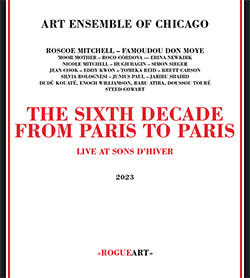

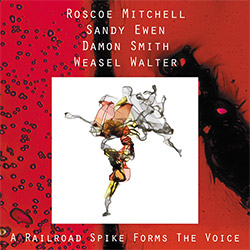

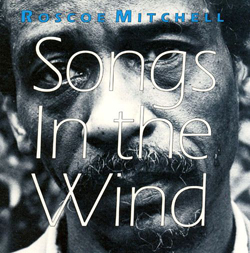
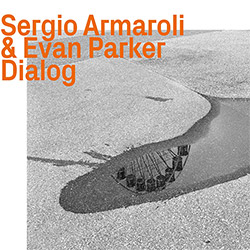
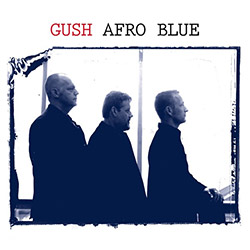
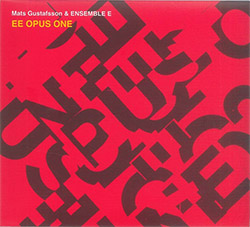



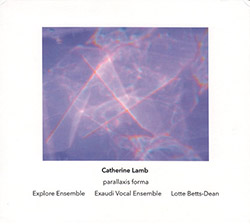



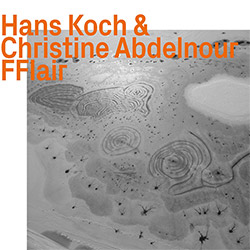
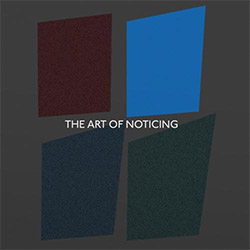
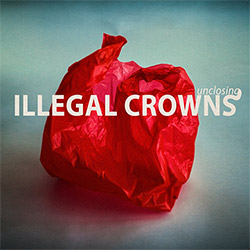
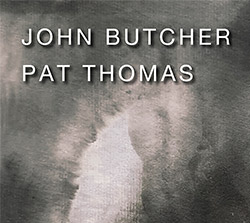


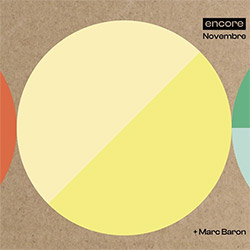
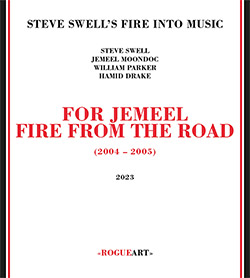

![Niblock, Phill / Anna Clementi / Thomas Stern: Zound Delta 2 [VINYL]](https://www.teuthida.com/productImages/misc4/34623.jpg)
![Yoko, Ono / The Great Learning Orchestra: Selected Recordings From Grapefruit [2 CDs]](https://www.teuthida.com/productImages/misc4/35841.jpg)

![Brotzmann, Peter / John Edwards / Steve Noble / Jason Adasiewicz: The Quartet [2 CDs]](https://www.teuthida.com/productImages/misc4/35975.jpg)
![Brotzmann, Peter / John Edwards / Steve Noble / Jason Adasiewicz: The Quartet [VINYL 2 LPs]](https://www.teuthida.com/productImages/misc4/35976.jpg)
![Thomas, Pat: The Solar Model of Ibn-Al Shatir [VINYL]](https://www.teuthida.com/productImages/misc4/36044.jpg)
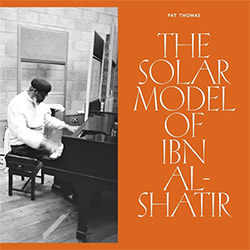



![Rodrigues, Ernesto / Nuno Torres / Guilherme Rodrigues: Whispers In The Moonlight - In Seven Movements [2CDs]](https://www.teuthida.com/productImages/misc4/35765.jpg)



![Cocks, Laura: FATHM [VINYL]](https://www.teuthida.com/productImages/misc4/36055.jpg)










![Ackerley / Prymek / Turner: All Hope With Sleeping Minds [CASSETTE]](https://www.teuthida.com/productImages/misc4/35950.jpg)
![Myers, David Lee : Tin Drop Tear [BOOK w/ DOWNLOAD]](https://www.teuthida.com/productImages/misc4/36030.jpg)




![Schindler, Udo / Sandy Ewen / Damon Smith: Munich Sound Studies Vols. 4, 5 & 6 [3 CDs]](https://www.teuthida.com/productImages/misc4/35966.jpg)
![Turbulence Orchestra & Sub-Units: Smear Out the Difficulties (Double Live) [2 CDs]](https://www.teuthida.com/productImages/misc4/36048.jpg)


![Perelman, Ivo / Tyshawn Sorey: Paralell Aesthetics [2 CDs]](https://www.teuthida.com/productImages/misc4/35871.jpg)


![Sjostrom, Harri: SoundScapes #4 Festival Berlin 2023 [3 CDs]](https://www.teuthida.com/productImages/misc4/35874.jpg)



![Glenn, Jordan: Flustered [CASSETTE]](https://www.teuthida.com/productImages/misc4/35948.jpg)










![Olencki, Weston : Pearls Ground Down To Powder [VINYL]](https://www.teuthida.com/productImages/misc4/35956.jpg)
![Myers, David Lee: Oculus [2CDs]](https://www.teuthida.com/productImages/misc4/35857.jpg)


![dustsceawung: dustsceawung [CASSETTE w/ Download]](https://www.teuthida.com/productImages/misc4/35753.jpg)




![Halls of the Machine: Atmospheres For Lovers And Sleepers [CASSETTE w/ DOWNLOAD]](https://www.teuthida.com/productImages/misc4/35806.jpg)



![AHC (Alexander Cooper): Lase [2 CDs]](https://www.teuthida.com/productImages/misc4/35754.jpg)



![Fagaschinski, Kai / Yan Jun : Graveyard Processions [VINYL w/ DOWNLOAD]](https://www.teuthida.com/productImages/misc4/35474.jpg)









![Zorn, John / JACK Quartet: The Complete String Quartets [2 CDs]](https://www.teuthida.com/productImages/misc4/35609.jpg)

![Lonsdale, Eden: Dawnings [2 CDs]](https://www.teuthida.com/productImages/misc4/35480.jpg)







![Sanna, Claudio: Compositori Sardi Contemporanei II [2 CDs]](https://www.teuthida.com/productImages/misc4/35317.jpg)







![Zurria, Manuel: Fame di Vento [3 CDs]](https://www.teuthida.com/productImages/misc4/35167.jpg)


![Electric Bird Noise / Derek Roddy: 8-10-22 [CD EP]](https://www.teuthida.com/productImages/misc4/35970.jpg)








![Elephant9 : Mythical River [VINYL]](https://www.teuthida.com/productImages/misc4/34624.jpg)



![Elephant9 with Terje Rypdal: Catching Fire [VINYL 2 LPs]](https://www.teuthida.com/productImages/misc4/35355.jpg)
![Deerlady (Obomsawin, Mali / Magdalena Abrego): Greatest Hits [VINYL]](https://www.teuthida.com/productImages/misc4/34876.jpg)







![Surplus 1980: Illusion of Consistency [CD]](https://www.teuthida.com/productImages/misc4/35069.jpg)
![Staiano, Moe: Away Towards the Light [VINYL + DOWNLOAD]](https://www.teuthida.com/productImages/misc4/35037.jpg)



![Caveira (Gomes / Sousa / Abras / Ferrandini): Ficar Vivo [VINYL]](https://www.teuthida.com/productImages/misc4/34643.jpg)
![Coley, Byron: Dating Tips for Touring Bands [VINYL]](https://www.teuthida.com/productImages/misc4/17906.jpg)

![Lost Kisses: My Life is Sad & Funny [DVD]](https://www.teuthida.com/productImages/misc4/lostKissesDVD.jpg)